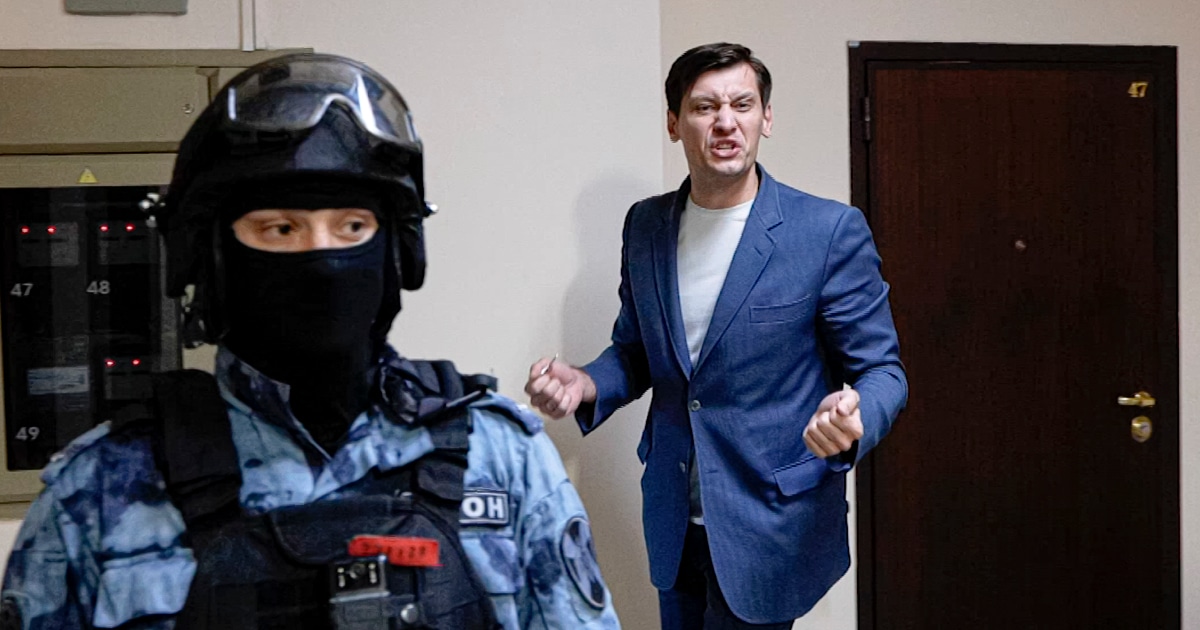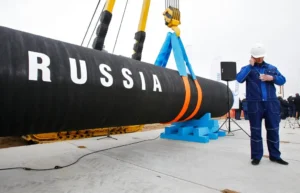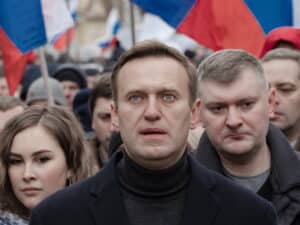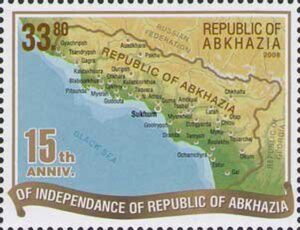Before he left the country, Gudkov had been in police custody. Image: Daniel Kozin/AP
Last week, on the 6th of June, well-known Russian opposition politician Dmitry Gudkov left the country for Ukraine. Earlier, he had spent two days in police custody over a housing dispute and unpaid rent – a case he says is fabricated.
The 41-year-old is a former parliament member, having been part of the Duma from 2011 until 2016. He unexpectedly announced on Facebook that he had crossed Russia’s borders to protect his family from Kremlin reprisals for his politics. Gudkov announced earlier this year that he intended to run in a parliamentary vote in September, in which the ruling United Russia party is expected to struggle. Gudkov said that “people close to the Kremlin” had called his father and wife, telling them he must leave the country before the elections or else they would be thrown behind bars.
The event comes as authorities continue to crack down on dissent ahead of September’s parliamentary elections. An overview of the most prominent opposition figures and where they are now:
Andrei Pivovarov
Earlier this month, a court sent prominent opposition figure Andrei Pivovarov to jail for two months. Pivovarov, the head of the Open Russia movement, was pulled off a Warsaw-bound plane at St Petersburg’s airport just before takeoff late on Monday 31st of May. According to Pivovarov’s team, the police questioned him, searched his apartment and opened a criminal case against him for allegedly violating Russia’s legislation on “undesirable organisations”.
Russia had declared the Open Russia group “undesirable” in 2017, effectively banning its activities. Its supporters continued their activism under a separate legal entity to try to protect themselves, but halted its activities this year to prevent having to face criminal prosecution.
Alexei Navalny
The president’s leading political opponent, Alexei Navalny, was arrested in January this year. He is serving a two and a half year jail term for parole violations related to an embezzlement conviction he says was fabricated.
The arrest was made upon his return from Germany, where he had spent five months recovering from a nerve agent poisoning that he blames on the Kremlin. Russian officials reject the allegations of poisoning.
Navalny had become well-known for his Navalny LIVE YouTube channel, which produced highly detailed video investigations on the Russian elite and discussed political issues. Navalny had built a political infrastructure across Russia prior to his arrest.
Lyubov Sobol
One of the closest aides of Alexei Navalny is lawyer and journalist Lyubov Sobol. This week, a Moscow court prolonged her curfew. The curfew bars Sobol from leaving her home between 8 p.m. and 6 a.m. It was imposed after she helped lead unsanctioned rallies on January 21 to protest Navalny’s incarceration.
The curfew undermines her campaign for parliament. The 33-year-old lawyer said in March she planned to run for parliament’s lower chamber, the State Duma, in September elections. She is the latest opposition politician seeking a seat in parliament to face legal pressure.
Yarmysh, Volkov and Zhdanov
Other close allies of Navalny are also either under house arrest or have fled abroad. Kira Yarmysh (31) has worked as Navalny’s spokesperson since 2014. She has been under house arrest since February. Leonid Volkov, one of Navalny’s closest allies, left Russia in 2019 after the authorities opened a criminal case against him. Ivan Zhdanov – the director of Navalny’s Anti-Corruption Foundation – is now based abroad after his family was used to pressure him over his opposition activities.
It is clear that Russian authorities are cracking down on political opposition. The aim is removing challengers to the ruling United Russia party – which has lost support recently due to the country’s economic woes and is expected to struggle in the election – but also potential opponents of Putin ahead of the presidential elections in three years.
The sweep means that few critical voices remain. In the words of Dmitry Gudkov: “The opposition has been destroyed in Russia.”
Sources: Reuters, france24, euronews, bbc1, bbc2, rferl



